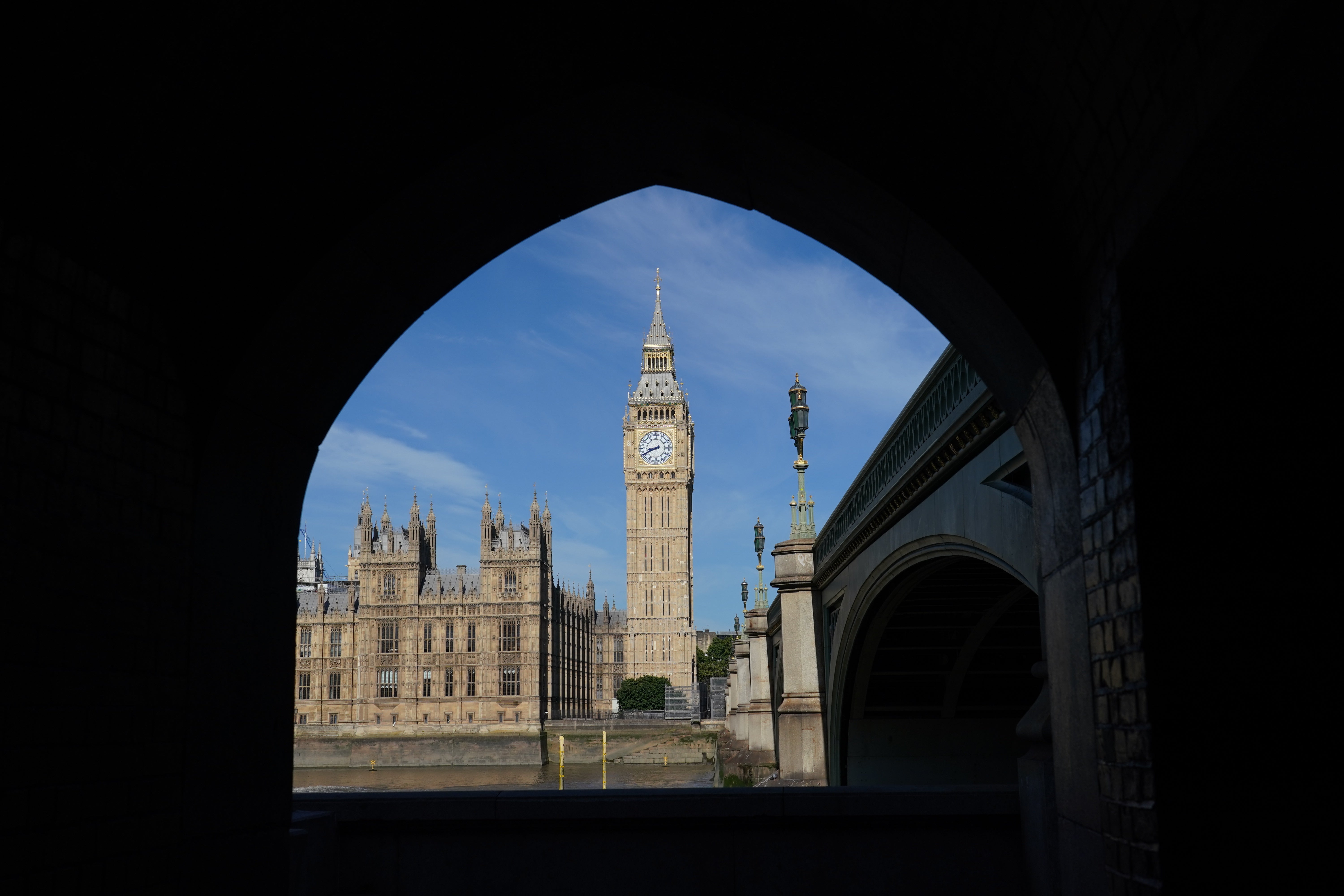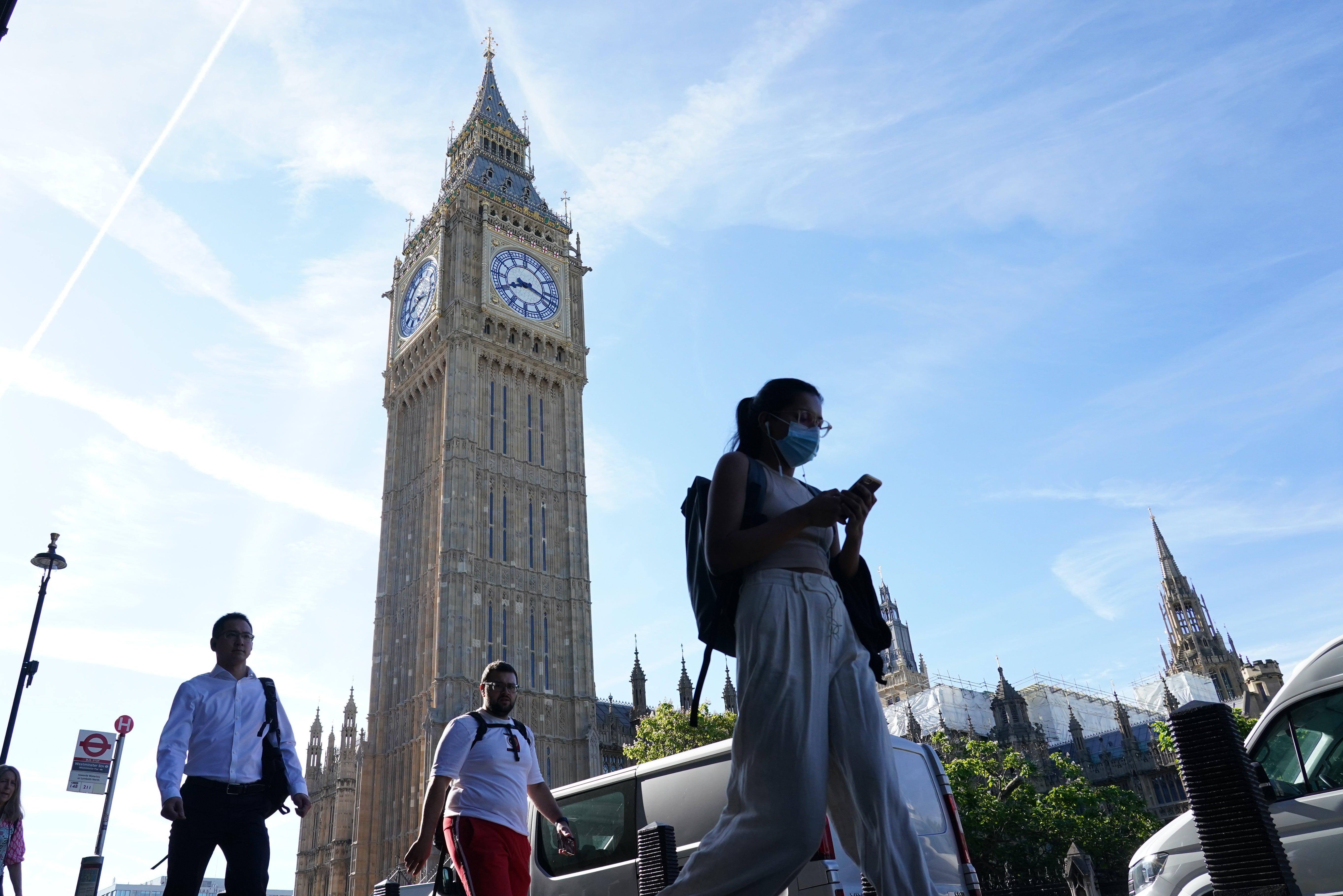Government ‘must act now’ to protect against extreme heat as UK braces for 40C
The government declared a national heatwave emergency for the first time on Friday, saying even fit and healthy people are at risk of death from blistering heat
Your support helps us to tell the story
From reproductive rights to climate change to Big Tech, The Independent is on the ground when the story is developing. Whether it's investigating the financials of Elon Musk's pro-Trump PAC or producing our latest documentary, 'The A Word', which shines a light on the American women fighting for reproductive rights, we know how important it is to parse out the facts from the messaging.
At such a critical moment in US history, we need reporters on the ground. Your donation allows us to keep sending journalists to speak to both sides of the story.
The Independent is trusted by Americans across the entire political spectrum. And unlike many other quality news outlets, we choose not to lock Americans out of our reporting and analysis with paywalls. We believe quality journalism should be available to everyone, paid for by those who can afford it.
Your support makes all the difference.Ministers have been urged to take action to make Britain fit to cope with extreme heat as the country faces temperatures above 40C for the first time.
The Met Office has issued its first “red extreme” heat alert while the government declared a national heatwave emergency for the first time, saying even fit and healthy people were at risk of death from blistering temperatures. Widespread disruption is expected with trains cancelled and Britons told to stay home.
MPs and government advisers warned that homes, city centres and NHS services must be urgently adapted and better action plans put in place for when extreme heat strikes, as the Met Office predicts 35C temperatures could happen once every three years by the end of the decade.

Richard Millar, head of adaptation at the Climate Change Committee, which advises the government, told The Independent around 2,000 people die each year due to heat-related injury and illness in the UK but that could rise to around 7,000 by mid-century if the government doesn’t act urgently to adapt to climate change.
“There’s a clear need to do more to help tackle those health-related impacts of heat,” he said. That would require buildings to be adapted, as 20 per cent of UK homes already overheat and “we can expect that number to rise in the future”, Mr Millar said.
The warning comes just weeks after the Climate Change Committee (CCC) condemned a "shocking gap” in government policy for better insulating homes, which if done correctly would protect against heat. It said despite spending promises in 2019 and committing to new policies last year, neither had materialised.
But when asked about the heat warning on Sunday, deputy prime minister Dominic Raab told Sky News that Britons should “enjoy the sunshine”, adding: “We ought to be resilient enough through some of the pressures it will place.”
Baroness Brown, chair of the CCC’s Adaptation Committee, said tackling heat risk now must be a “key” priority for the government.
“Our climate is changing today and will continue to do so. Action on overheating is now urgent,” she said.
To better adapt to extreme heat and protect lives, the Climate Change Committee has called on the government to ensure ventilation, insulation and external shuttering are installed in new and existing homes.
It also wants upper-temperature limits for workplaces to be clarified, more vegetation and water included in the design of towns and cities and to ensure power and utility networks can withstand heat in the future.
Marina Romanello, director of the Lancet Countdown, which tracks and works to advance progress on health and climate change, said this was important because services such as the NHS were already struggling to cope with this summer’s heatwave.
“You have an enormous amount of demand on the NHS, the hospitals cannot cope with these temperatures – many of them are not even air conditioned,” she said. “Everything suggests we will not be able to adapt to warming that is a lot higher than it is now.”

Ms Romanello said the government needed to develop stronger early warning systems and action plans during heatwaves for public services.
“The NHS has an emergency plan, but you definitely will need to strengthen that in the face of increasing heatwaves,” she said. “You will need to be able to access and address people in a more tailored approach than we’re doing at the moment.”
This would require more funding and resources, and better alignment between the social care and health systems, and with the Met Office, she added.
The previous highest temperature seen in the UK was 38.7C in Cambridge in 2019.
Wera Hobhouse, climate change and energy spokesperson for the Liberal Democrats, said the extreme heat was “stretching” public services that had already been “decimated” by the government.
“Ambulance services are now facing the sort of pressure normally seen in winter, and as yet there has been no attempt to address this,” she toldThe Independent.
“The government must put in a plan to support overstretched health and social care services and put in place a plan for future heatwaves,” she added.
Climate scientists have repeatedly warned that human-induced climate change is making heatwaves in the UK more frequent and more intense.
Caroline Lucas, the Green MP for Brighton, said measures including planting more trees on streets, creating more green walls and roofs or protecting green spaces in towns and cities could help make living spaces cooler.
“But frankly, the very best way to tackle extreme heat is to keep fossil fuels in the ground, and get carbon emissions down,” she said.
“We can’t be green-lighting new climate-busting North Sea oil and gas projects, or coal mines in Cumbria, if we are to keep global temperatures in check. We’re in a climate emergency – we need to act like it.”
A government spokesperson said: "Ministers and officials are working right across government alongside the devolved administrations, as well as our partners, to assess and mitigate the impact of the heatwave, and we are already taking all the necessary steps to protect the public. Effective contingency measures will be immediately stood up if and when needed, whether it be to support the NHS or rail services.
"We would urge everyone to continue to take precautions to ensure they are able to stay cool as well as support vulnerable family, friends and neighbours who may find it more difficult to cope.”
The NHS has tried and tested contingency plans for a wide range of scenarios, including heatwaves, the spokesperson added.
Join our commenting forum
Join thought-provoking conversations, follow other Independent readers and see their replies
Comments